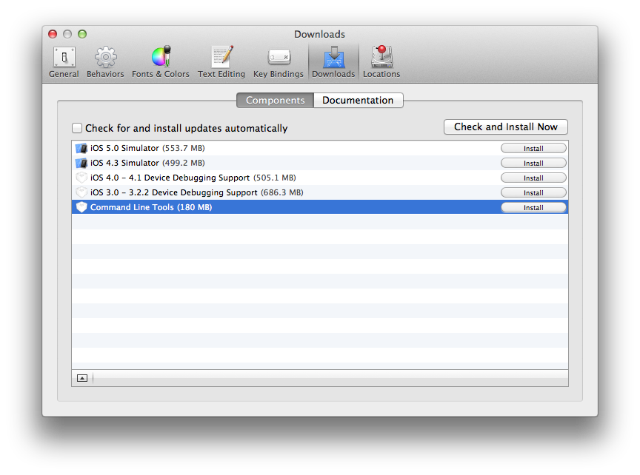
Introduction
MongoDB is a document-orientated database written with scalability and high-performance in mind. It is one of a growing number of NoSQL systems – a database that does not rely on SQL or relational theory at all.
Getting a MongoDB server working with PHP on Mac OS X is relatively straightforward, and this tutorial shows you how.
Installing the MongoDB Server
The first step requires you to download and install the actual MongoDB system. The example shown below downloads v2.0.0 64 bit binaries for OS X. For other binaries, please check out the MongoDB Downloads page.
cd /tmp
curl -O http://fastdl.mongodb.org/osx/mongodb-osx-x86_64-2.0.0.tgz
tar zxvf mongodb-osx-x86_64-2.0.0.tgz
sudo mv mongodb-osx-x86_64-2.0.0 /usr/local/mongodb
mkdir /usr/local/mongodb/data
Configuring the MongoDB server
We need to create a small configuration file so that MongoDB knows where its data files reside. Create the file /usr/local/mongodb/mongod.conf and add the following line:
dbpath = /usr/local/mongodb/data
Starting MongoDB
To manually start the MongoDB server, use the following command:
/usr/local/mongodb/bin/mongod --config /usr/local/mongodb/mongod.conf
This will start the server and will by default log all output to STDOUT.
Installing the MongoDB PHP Extension
Installing the PHP extension is simple:
sudo pecl install mongo
Once this has completed, add the following line to your /etc/php.ini file:
extension=mongo.so
Restart apache using sudo apachectl restart, and the extension should be available. This can be verified with the phpinfo call:

Example PHP script
To test your setup, the following simple script can be used to create a new collection and add two new records:
<?php
// connect
$m = new Mongo();
// select a database
$db = $m->comedy;
// select a collection (analogous to a relational database's table)
$collection = $db->cartoons;
// add a record
$obj = array( "title" => "Calvin and Hobbes", "author" => "Bill Watterson" );
$collection->insert($obj);
// add another record, with a different "shape"
$obj = array( "title" => "XKCD", "online" => true );
$collection->insert($obj);
// find everything in the collection
$cursor = $collection->find();
// iterate through the results
foreach ($cursor as $obj) {
echo $obj["title"] . "\n";
}
?>
The script should output the following:
Calvin and Hobbes
XKCD
And that’s it! You now have a working MongoDB setup on Mac OS X.
For more information on the PHP extension for MongoDB, please see the following pages in the PHP Manual:
PHP: Mongo – Manual
I’m a freelance software developer with 18 years’ professional experience in web development. I specialise in creating tailor-made, web-based systems that can help your business run like clockwork.
I am the Managing Director of Yellow Square Development.
More Posts
Follow Me:













